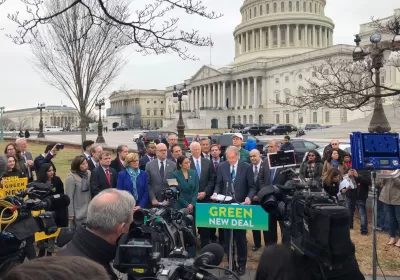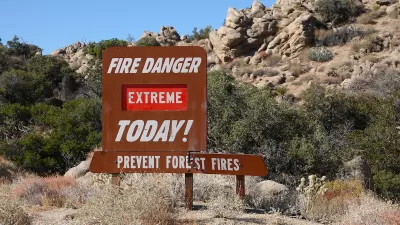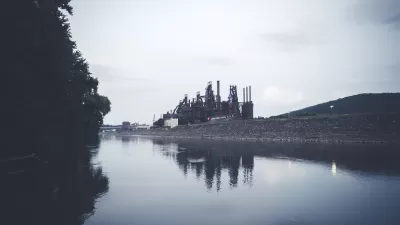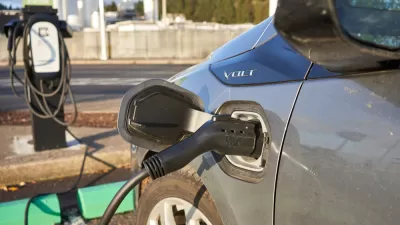Long before winning the congressional seat in California's 49th District, Mike Levin advocated for clean energy and a green economy.

Shortly after being elected to Congress, California Rep. Mike Levin endorsed the concept of a Green New Deal (later introduced as a resolution by Rep. Alexandria Ocasio-Cortez and Sen. Edward Markey). Then, he initiated the first Congressional hearings on climate change in nearly a decade.
Levin represents coastal communities in the counties of Orange and San Diego. In an exclusive interview with The Planning Report, he details his plans for bold climate action and the types of policies that will ground the broad Green New Deal framework.
The resolution "addresses the myth that a shift to a clean and renewable energy economy has to come at the expense of jobs," Levin tells TPR. "Quite the opposite: The Green New Deal and an accelerated transition to renewables will help us grow the clean energy jobs of the future and lift up the middle class."
In the interview, Levin—an energy wonk at heart—names his top strategies for getting California to 100 percent renewable energy by 2045:
- Upgrading the electrical grid to accommodate distributed energy generation
- Facilitating widespread adoption of electric vehicles
- Reducing the carbon footprint of building stock
He also describes his efforts to safely store radioactive waste from nuclear plants, particularly the decommissioned San Onofre plant on the California coast. And, he promises, "We House Democrats are absolutely committed to passing an infrastructure bill."
FULL STORY: California Rep. Mike Levin on the Green New Deal & Congressional Climate Action

Planetizen Federal Action Tracker
A weekly monitor of how Trump’s orders and actions are impacting planners and planning in America.

Congressman Proposes Bill to Rename DC Metro “Trump Train”
The Make Autorail Great Again Act would withhold federal funding to the system until the Washington Metropolitan Area Transit Authority (WMATA), rebrands as the Washington Metropolitan Authority for Greater Access (WMAGA).

The Simple Legislative Tool Transforming Vacant Downtowns
In California, Michigan and Georgia, an easy win is bringing dollars — and delight — back to city centers.

The States Losing Rural Delivery Rooms at an Alarming Pace
In some states, as few as 9% of rural hospitals still deliver babies. As a result, rising pre-term births, no adequate pre-term care and harrowing close calls are a growing reality.

The Small South Asian Republic Going all in on EVs
Thanks to one simple policy change less than five years ago, 65% of new cars in this Himalayan country are now electric.

DC Backpedals on Bike Lane Protection, Swaps Barriers for Paint
Citing aesthetic concerns, the city is removing the concrete barriers and flexposts that once separated Arizona Avenue cyclists from motor vehicles.
Urban Design for Planners 1: Software Tools
This six-course series explores essential urban design concepts using open source software and equips planners with the tools they need to participate fully in the urban design process.
Planning for Universal Design
Learn the tools for implementing Universal Design in planning regulations.
Smith Gee Studio
City of Charlotte
City of Camden Redevelopment Agency
City of Astoria
Transportation Research & Education Center (TREC) at Portland State University
US High Speed Rail Association
City of Camden Redevelopment Agency
Municipality of Princeton (NJ)





























